Life
Sign up for our newsletter
We summarize the week's scientific breakthroughs every Thursday.
-
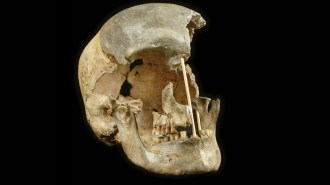 Genetics
GeneticsEurope’s oldest known humans mated with Neandertals surprisingly often
DNA from ancient fossils suggests interbreeding regularly occurred between the two species by about 45,000 years ago, two studies find.
By Bruce Bower -
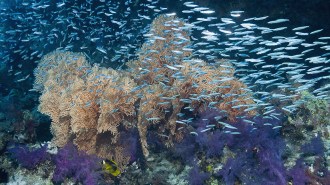 Animals
AnimalsTiny crystals give a plain fish twinkling, colorful dots under light
Fishes’ flashing photonic crystals may provide inspiration for ultra-miniaturized sensors that work in a living body.
By Susan Milius -
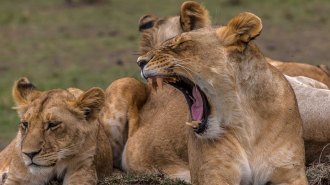 Life
LifeYawning helps lions synchronize their groups’ movements
A lion yawn is contagious, and when lions start yawning together, they start moving together. Synchronization may be key for group hunters like lions.
By Jake Buehler -
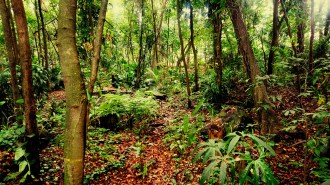 Paleontology
PaleontologyThe dinosaur-killing asteroid impact radically altered Earth’s tropical forests
The asteroid impact fundamentally reset the nature of Earth’s tropical rainforests, decreasing diversity at first and making them permanently darker.
-
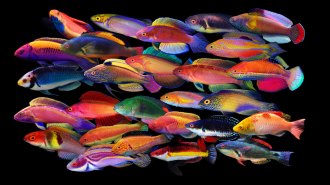 Life
LifeFlamboyant fishes evolved an explosion of color as seas rose and fell
Fluctuations in sea level due to cycling ice ages may have powered an engine in tropical seas that pumped out gaudy fish species.
By Jake Buehler -
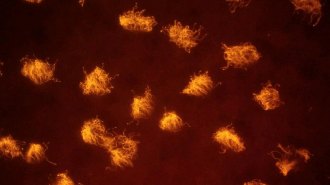 Health & Medicine
Health & MedicineFrog skin cells turned themselves into living machines
The “xenobots” can swim, navigate tubes, move particles into piles and even heal themselves after injury, a new study reports.
-
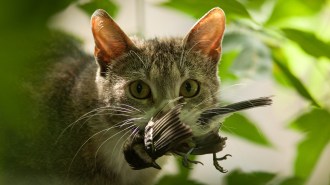 Life
LifeThese are the 5 costliest invasive species, causing billions in damages
Invasive species have cost the global economy at least $1 trillion since 1970 and $162.7 billion in 2017 alone. The annual cost is increasing.
-
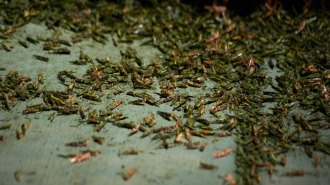 Animals
AnimalsWeather radar shows 30 metric tons of grasshoppers swarmed Las Vegas one night
Everything’s glitzier in Las Vegas. The most intensely lit U.S. city shows the impact of artificial light on insects on a megascale.
By Susan Milius -
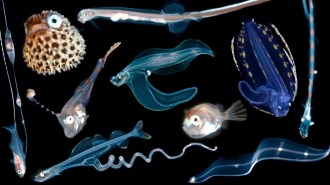 Animals
AnimalsDazzling underwater photos capture new views and scientific detail of fish larvae
Lab specimens of fish larvae are often mangled and bleached. Divers and researchers have partnered to study their rich colors and intricate bodies.
-
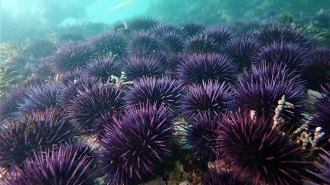 Ecosystems
EcosystemsHow kelp forests off California are responding to an urchin takeover
A pair of studies reports 95 percent loss of kelp forests along the northern coast while sea otters are helping maintain surviving kelp farther south.
-
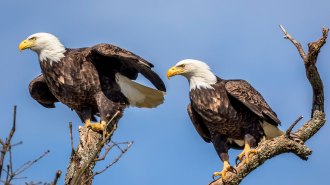 Animals
AnimalsA toxin behind mysterious eagle die-offs may have finally been found
A 20-year study of water weeds and cyanobacteria in the southern United States pinpoints a bird-killing toxin, and it's not your usual suspect.
By Susan Milius -
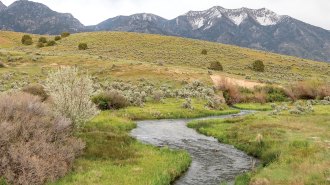 Ecosystems
EcosystemsSimple hand-built structures can help streams survive wildfires and drought
Building simple structures with sticks and stones — and inviting in dam-building beavers — can keep water where it’s needed to fight drought and wildfires.